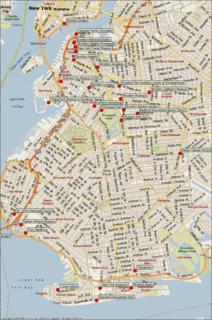The Planet

New York Times Magazine
Lives
July 3, 2005
The Long Way Home
By MARSHA MEHRAN
Growing up, I thought that destiny had marked me for a life of impermanence. I wasn't even 2 years old on Nov. 4, 1979, the day my father hoped to get his visa from the American Embassy in Tehran. Having long harbored academic ambitions, my parents had finally decided to emigrate. They were luckier than many Iranians; they had modest savings and letters of acceptance from the University of New Mexico. A U.S. visa was the only thing standing in their way.
Good timing has never been a talent in the Mehran family. That very day, a band of revolutionary students stormed the embassy's front door and took its employees hostage. With the embassy under siege, visas were no longer issued to Iranians, and my parents were forced to abandon their dreams of American academia. Following a friend's advice, they moved to Buenos Aires and opened a Middle Eastern cafe, El Pollo Loco (the Crazy Chicken), where the heady smells of dolmas and spicy beef kebabs were an instant hit with Argentine locals.
In Buenos Aires, I attended St. Andrew's, a Scottish private academy where students spoke English exclusively and where we pledged loyalty to the British monarchy every morning. I loved the bagpipe ceremonies and kilted school uniforms. Meanwhile, I was learning three languages simultaneously (Farsi at home, English at school and Spanish in the streets). Every night before going to bed, I was required to say good night in all three languages: ''Shab bekheir, buenas noches and good night.''
With threats of military coups and a collapsing Argentine economy, my parents were forced to sell their beloved cafe. In the spring of 1984, we left again, for Miami. My father found work as a sous chef in a health-food restaurant, and my mother dressed in powder pink and sold Mary Kay cosmetics door to door. Adjusting to the rhythms of American life, I immersed myself in dodgeball and Saturday-morning cartoons. At home, the sofreh, an embroidered picnic cloth, was still covered with platters of buttery lima-bean rice, delicate herb stews and pistachio cake, but in the shopping mall across from our tenement apartment, I indulged in corn dogs, cherry Slurpees and peanut M&M's.
Revolutions come in all varieties. For me, the biggest one came at 14, when my parents announced they were divorcing. Somewhere along the line, somewhere between chopping root vegetables and learning to say, ''Let Mary Kay make your day,'' their marriage had lost ground. My mother and I went to live in Australia, where my grandparents migrated after the revolution in Iran. Although the quirky vocabulary of the Australians and the warmth of my new schoolmates helped ease the pain of my parents' separation, Australia struck me as barren.
I don't think I was fully aware of what was wrong, why I felt so unmoored in Australia. All I knew was that I did not belong in that pale, homogenized culture with its sausage sizzles and flat beer. So in 1997, at 19, I left for New York with about $200 in my pocket. I told myself that I was seeking new adventures, but I think I was looking for a place to call home.
I took on a variety of bizarre jobs in Manhattan -- a Broadway poster hanger, personal assistant on film sets, hostess in a restaurant owned by Russian mobsters and the odd, humiliating waitressing gig. I also met my husband, an Irishman who worked as a bartender at Ryan's Irish Pub on Second Avenue.
According to my father, an Irishman was an Iranian once removed. ''Ireland,'' my father said when I notified him of my impending nuptials, ''Ireland is really Iran-Land.'' Crazy, perhaps, but there was something appropriate about marrying an Irishman, as if my Celtic schooling had somehow predestined such a meeting. My husband's name is Christopher, same as the patron saint of travelers.
Christopher and I lived for two years in a cottage in the west of Ireland. But now our days abroad are over, and we're back in the United States. We have settled in Brooklyn, where, of all the places I've been, I feel most myself. I understand Brooklyn in my bones: the juxtaposition of so many voices, so many souls, so many foods, so many cultures. It is in this most American of cities that I have chosen to set down roots -- because it seems to me no other place better embodies the world.
I know that identity is a major concern for many first-generation immigrants in America, but I find that I'm not preoccupied with hyphenated labels. When people ask me where I am from, I say I am Persian, born in Iran. I write and dream in English, I curse in Spanish and, after a few pints of Guinness, I dance a mighty Irish jig. And when people ask me where I live, I tell them Brooklyn is my home.
Marsha Mehran is the author of a novel, ''Pomegranate Soup,'' which will be published by Random House next month.

0 Comments:
Post a Comment
<< Home